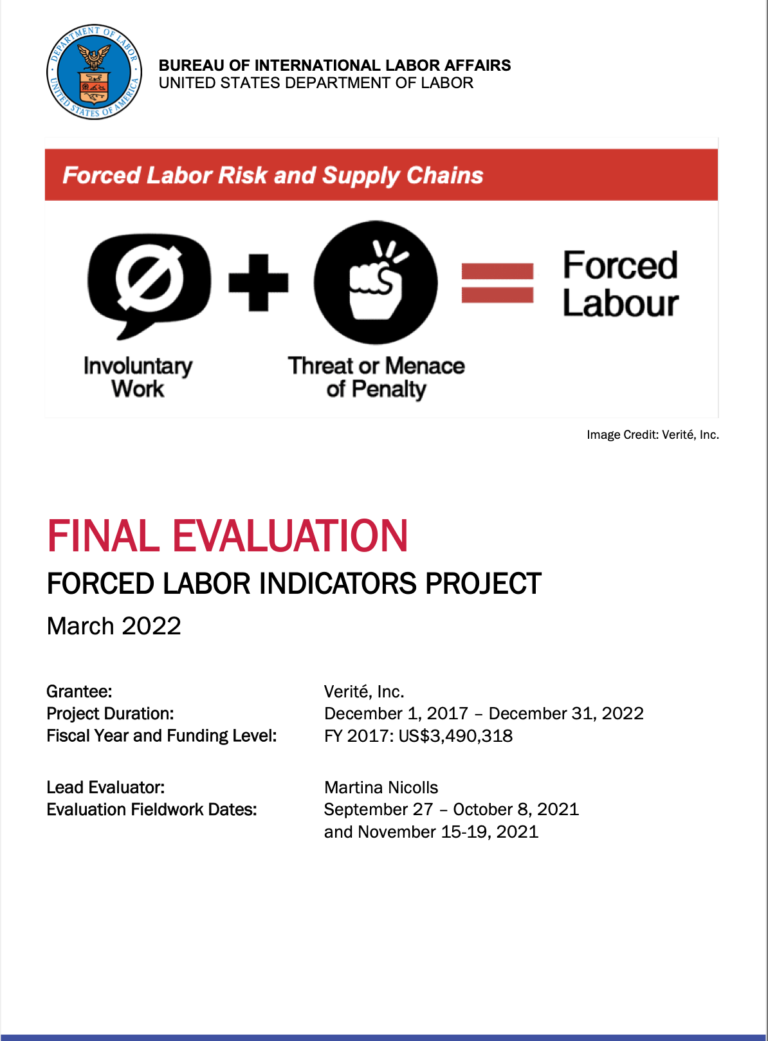In April 2021, the Government of Ghana (GOG) launched its Ten-Year Action Plan on the Eradication of Child Labor, Forced Labor, Human Trafficking and Modern Slavery in Africa (2020-2030): African Union Agenda 2063 – Sustainable Development Goal (SDG) Target 8.7. This was in process for several years following the issuance of the draft of the African Union’s ten-year plan in 2019, of which Ghana is a member state. Before 2019, the GOG, through the Ministry of Employment and Labor Relations (MELR) and its Labor Department, enacted new measures to strengthen the Labor Inspectorate officers, inspectors, and technical staff.1
In December 2017, Verité, Inc. commenced as the United States Department of Labor’s Bureau for International Labor Affairs’ (USDOL ILAB) implementing partner for the Forced Labor Indicators Project (FLIP) in Ghana and, from January 2021, in Côte d’Ivoire. The project will be completed by December 31, 2022, with FLIP Ghana concluding its activities in January 2022.2 This evaluation does not include Côte d’Ivoire. FLIP’s objective is that “companies, employers, governments, civil society, and workers have improved capacity to use International Labor Organization (ILO) indicators of forced labor (FL) to understand and address forced labor and labor trafficking in Ghana [and Côte d’Ivoire].”
The project has three outcomes (OTC) with corresponding outputs (OTP): 1) improved understanding of indicators of forced labor, including indicators of labor trafficking; 2) improved monitoring of working conditions by labor stakeholders to identify indicators and address incidents of forced labor and labor trafficking; and 3) strengthened capacity of the Labor Inspectorate to address forced labor and labor trafficking.3

